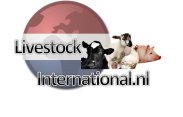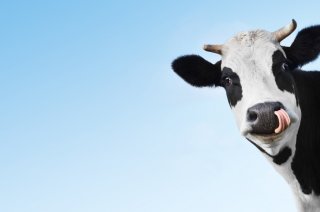Frontrunners in Responsible Livestock Development
Areas of expertise

The Livestock Dialogue
The Global Agenda for Sustainable Livestock, a.k.a. as the Livestock Dialogue, unites the forces of key representatives of the public and private sector, farmers, civil society and community-based organizations, and research and academic institutions from the livestock sector in an open multi-stakeholder platform. It was formulated in 2010 at the initiative of the Netherlands. Its goal is to work together in addressing the sustainability challenges that the livestock sector faces. The Global Agenda is led by the FAO.

Opportunities in Eurasia

Opportunities in Africa

Dutch expertise & opportunities
The Netherlands is known for intensive livestock production systems with a high resource efficiency and low emissions to the environment.

Dutch policy instruments for aid and trade
The Dutch government supports and encourages the development of livestock production in emerging economies by means of a range of policy instruments.
Rise in global consumption
Livestock is a vital part of the livelihood of many people in emerging economies across the world. The expected rise in global consumption of animal products confronts livestock production with the challenge to grow and professionalise, with due respect to the sustainability themes of resource use efficiency, greenhouse gas emissions, and pollution of ground and surface water. Meanwhile the sector participates in global discussions on fundamental issues like meat consumption. The global trends on the one hand offer opportunities for economic development, meeting nutrition needs, and strengthening the livelihoods of millions of farmers. On the other hand concerns about responsible livestock production are real and justified.
Livestock Dialogue
The Global Agenda for Sustainable Livestock, a.k.a. as the Livestock Dialogue, unites in an open multi-stakeholder platform the forces of key representatives of the public and private sector, farmers, civil society and community-based organizations, and research and academic institutions in the livestock sector. It was formulated in 2010 at the initiative of the Netherlands. Its goal is to work together in addressing the sustainability challenges that the livestock sector faces. The Global Agenda for Sustainable Livestock is led by the FAO. It has identified three ‘starter themes’: Resource Use Efficiency, Restoring Grasslands, and Waste to Worth. Dutch private and public actors are actively involved in the Livestock Dialogue. For example, Wageningen University & Research centre is leading the theme “Waste to Worth” which deals with making productive use of manure in an environmentally safe manner. The Netherlands also actively participates in a programme that develops global guidelines for life cycle assessment of livestock systems.
Read more
Responsible livestock development and the Dutch private sector
The Dutch government supports and encourages the responsible development of livestock production in emerging economies. Various policy instruments are available. The increasing demand for livestock products, especially in upcoming and developing countries, offers opportunities for supporting sustainable sector development for the Dutch private sector. So far have these have not been seized fully.
The intent of this website primarily is to serve as platform for communication with the Dutch private sector and their international partners, by facilitating easy access to information on the international developments in de livestock sector. It likely is of interest to a wider public as well.
The Dutch livestock sector has longstanding and strong experience with taking into account the challenges connected with growth and intensification of livestock production. The intensive mode of livestock production in the Netherlands has taught us to look concurrently at profitability, social acceptance, and ecological impact. Examples are development of innovative housing systems that provide more comfort to the animals, realizing a significant reduction in the use of antibiotics, and realizing better and environmentally sound use of manure that resulted in a major reduction of chemical fertilizer use
Investing in livestock internationally can achieve multiple goals: Next to offering Dutch companies new business opportunities, it also contributes to local economic development, food security, and reduction of greenhouse gas emissions.

